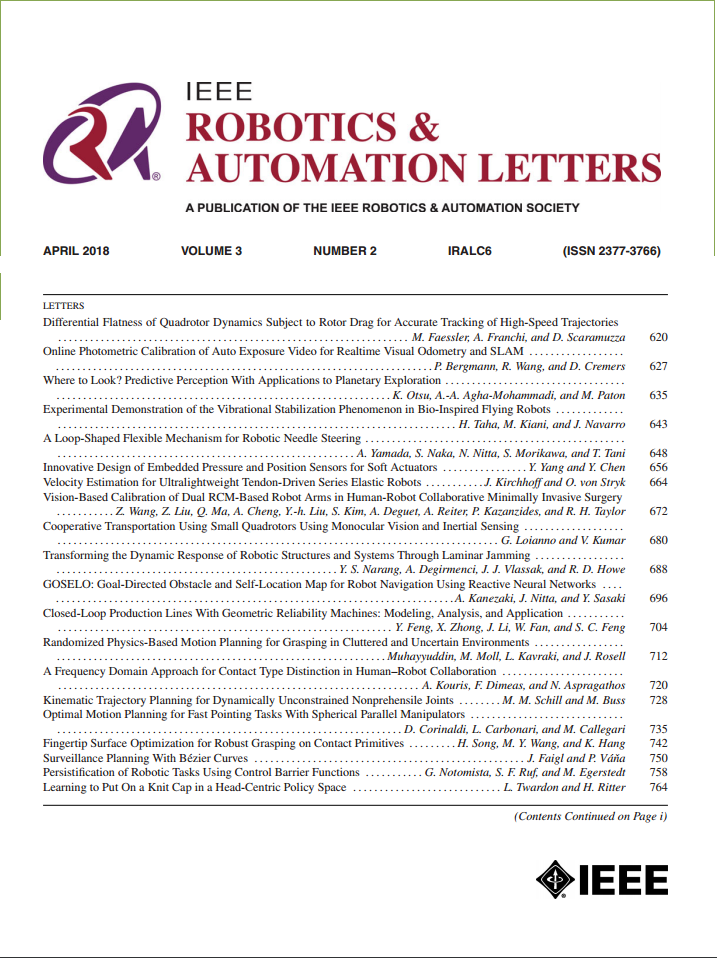基于保鲁棒部分公式计算的信号时间逻辑后退水平控制
IF 5.3
2区 计算机科学
Q2 ROBOTICS
引用次数: 0
摘要
针对动态环境下复杂规格的机器人控制问题,提出了一种有界记忆后退视界控制方法。我们使用信号时间逻辑,一种量化轨迹满足规范的鲁棒性的逻辑,来指定机器人的行为。为了处理无界规范,我们考虑一个短的规划范围,只搜索不冲突的轨迹。我们确定了信号时间逻辑的子集,这种方法只需要过去的有限记忆,并利用句法分离来总结轨迹演变的鲁棒性满意度。我们在动态环境中使用后退地平线控制来实现我们的方法。在几个案例研究中,我们展示了与最先进的方法相比,我们的方法的有效性和可扩展性。本文章由计算机程序翻译,如有差异,请以英文原文为准。
Receding Horizon Control for Signal Temporal Logic Using Robustness-Conserving Partial Formula Evaluation
We present a bounded-memory receding horizon approach to robot control for complex specifications in dynamic environments. We use Signal Temporal Logic, a logic that quantifies how robustly trajectories satisfy the specification, to specify robot behavior. To handle unbounded specifications, we consider a short planning horizon, only searching for nonviolating trajectories. We identify the subset of Signal Temporal Logic for which this approach needs only a bounded memory of the past, and leverage syntactic separation to summarize the robust satisfaction of the trajectory as it evolves. We implement our approach using receding horizon control in dynamic environments. We demonstrate the effectiveness and scalability of our approach compared to the state-of-the-art approach in several case studies.
求助全文
通过发布文献求助,成功后即可免费获取论文全文。
去求助
来源期刊

IEEE Robotics and Automation Letters
Computer Science-Computer Science Applications
CiteScore
9.60
自引率
15.40%
发文量
1428
期刊介绍:
The scope of this journal is to publish peer-reviewed articles that provide a timely and concise account of innovative research ideas and application results, reporting significant theoretical findings and application case studies in areas of robotics and automation.
 求助内容:
求助内容: 应助结果提醒方式:
应助结果提醒方式:


